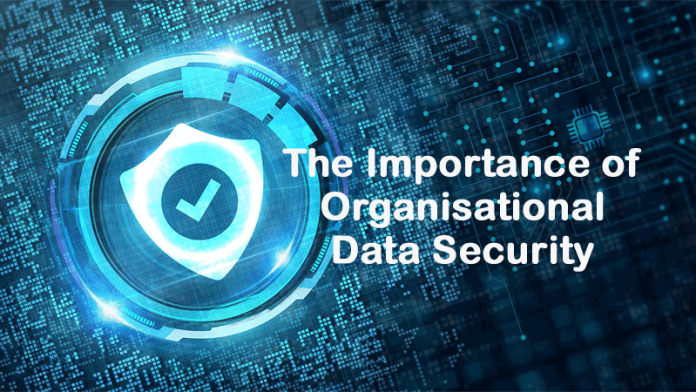Every day we move further into a more complex and improved technological era, and keeping on top of cyber-security and data protection is becoming more critical than ever. Because as technology advances, the quantity and capabilities of hackers and scammers grows alongside it. The growth in cyber-attacks throughout recent years has turned into a central issue for anyone who utilizes the internet, particularly organizations and businesses.
What Defines Data Security?
Data Security can be defined as:
“Data security means protecting digital data, such as those in a database, from destructive forces and from the unwanted actions of unauthorized users, such as a cyberattack or a data breach”
A data breach can be a worst-case scenario for most businesses. You should ask yourself; How secure is your information? In the event that you don’t know, here’s a couple of tips on how you can keep your business information secure.
Restricting Access and Permissions
By restricting your information access, you are essentially one bit nearer to preventing a cyber-attack. Most associations will give permission to access their information to specific employees.
Your employees should only have access to what they need on an everyday working basis, and the various information that is required by their working role. By restricting this access control to only the members of staff that need it, you’re helping to protect your information all the more effectively, and you’re ensuring that any potential hacking or password stealing will limit the amount of data that a cyber-criminal would have access to.
Password Strength is Key
While you’re making new or revising previously existing passwords, you will need to ensure the password is as complex as you can (as long as you can still remember it!) so it’s harder for programmers or hacking devices to guess or “brute force” them manually and gain access to your profile.
Consider irregular ideas for your passwords that don’t have anything to do with your business or anything to do with your personal life, like names, date of birth, or your address. For your passwords, utilize unique characters, capitalized letters, and numbers if possible (and memorable). If a password is a little too complex to remember, make a note of it, but make sure it is somewhere secure (i.e, not stored on a document on the computer that the password is for, or on a post-It note on your desk!).
If you desire an extra level of continual security, changing your passwords at regular intervals can be a possibility, and in some cases, is an automatic requirement in larger businesses. This may simply give you peace of mind, as due to the event of an employee leaving the business after you have changed a password that they have had access to, they will be unable to access those accounts due to the regularity of the password updates. Furthermore, as mentioned above, automatic updates can be set for employees to change their passwords regularly, generally improving cyber-security with constantly changing access requirements.
The majority of online-based software systems and projects will utilize two-step authorisation; requiring the use and access of a secondary form of digital identification, such as a mobile or linked email address, can drastically improve security. With systems and software that use this verification, codes or passphrases will be sent to the secondary authenticators, requiring a minimum of two (possibly more!) passwords to be utilised in order to sign in successfully, and access things like confidential or sensitive information.
Backing Up your Data
Backing up and updating your data should be an integral part of any data protection and security plan. Organizations should be ready for unexpected occurrences and have mitigations and contingencies in place to deal with them; these could be as minor as a solitary PC reset, or a business-halting data-loss on a local server. Try to get into the habit of keeping your data backed up regularly, whether that is in-person or set to complete automatically, on either a day to day, weekly, or even a once-a-month regularity.
Your corporate information is the most important and invaluable asset to you and your business. Keeping it secure is critical, and one method for doing this is by safeguarding it through secure and effective antivirus software. Your IT office should be productive and should understand what they’re doing to keep your information safeguarded. Ensure you’re recruiting those to the right positions with the right abilities required for the task, and somebody you can really entrust with your information.
Getting the Right Training
At the point when you integrate new software and working tools with your business, the best thing to do is give your workers the appropriate training on them when they become accessible, so they understand what they’re doing before they begin utilizing them.
Your workers should understand how to appropriately protect information and passwords with the goal that a potential hacker or cyber-criminal (who doesn’t work for your business) can’t gain access to your precious data. They should understand that on the off chance that a data-breach were to occur, the knock-on effect it can have on the business and, possibly, their positions and roles within the business itself. Take the time to assist them with understanding that it is vital to keep information secure, and how they can each help with keeping that information safeguarded.
In Conclusion
As long as you adhere to these tips, your business and workers will be ready if at any point your business were to be the target of a cyber-attack. You ought to have the security software and physical devices expected to defend your private business information from a potential data-breach. For a more in-depth glance at our top security tips and guidance, why not look at our blog here. Stay safe out there!

























